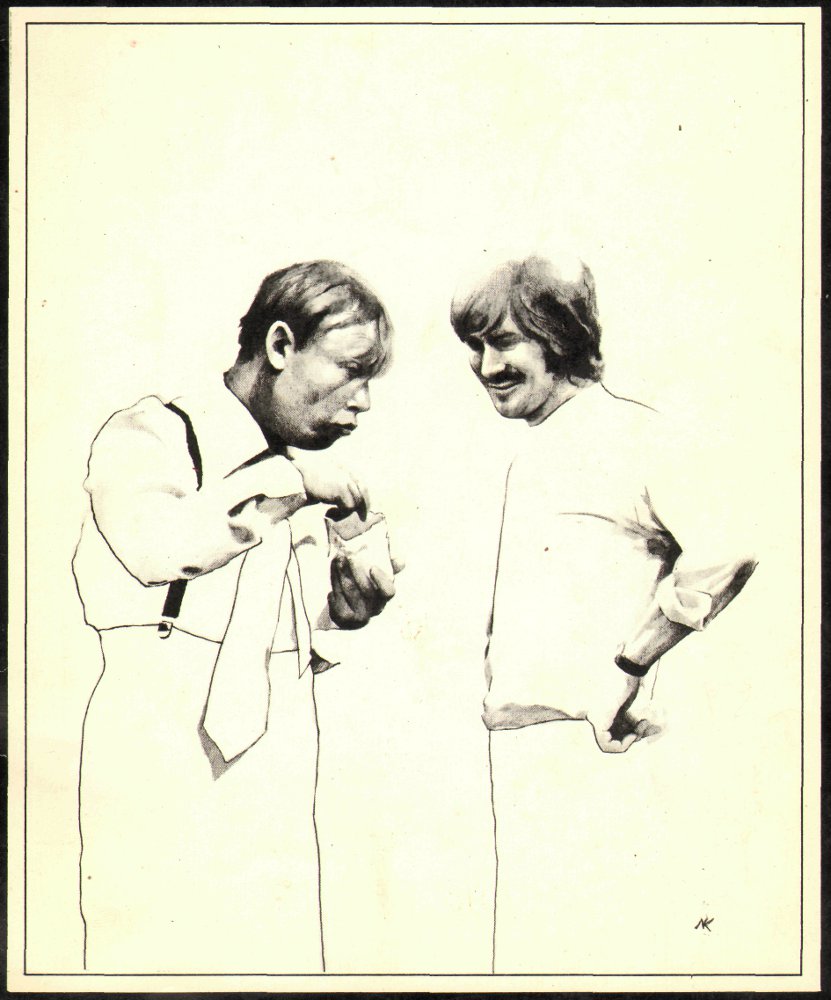TAC Bulletin Special – Issue Number 322 – August 2023
In Mind – a written monument
This is collection of short pieces by Peter Limbrick is about people of all ages who have learning disabilities and about the conditions they experience in any country. The collection spans the period from the1970s, coinciding with the gradual closure of some of the big 'mental handicap hospitals' in the UK.
The poetry and prose pieces are offered as a monument to adults and children who have lived and died or are living now in inhuman situations. Please use them if you wish so that this ‘monument’ gets noticed in as many places as possible. Make reference to 'In Mind' in your social networks if you can.
They are written from different points of view and in a variety of voices including that of a mother (number 37), a mental handicap nurse (24), a bereaved father (38), a schoolgirl volunteer (20), a paediatrician (46) and an art therapist (3).
The first piece, ‘Letter’, from an imaginary therapy manager to a national newspaper and the last piece, ‘In Mind’, set the context for the whole collection. They are offered here as an introduction:
1. Letter
This is my first ever letter to national newspaper. I want to raise a
topic that I have not seen aired in any paper or on television.
I manage a children’s therapy department in a London hospital and
I meet a lot of families whose baby or young child has some
degree of brain damage. The children often have cerebral palsy
and might also have learning difficulties, sight loss and hearing loss.
We help children develop and at the same time try to support
parents to become confident in bringing up their children.
Not many years ago, children like this might have been put into
institutions. This still happens in many countries but in the UK we
believe children are better staying with their families. This move
from institutional care has coincided with progress in medical
technology so that more brain-damaged children survive.
It is my view that in closing institutions we have won only half
the battle because we have put many families under severe stress.
Some parents struggle to care for their child - becoming
exhausted, sleep-deprived and socially isolated. Keeping a job and
going on holiday can become impossible. Parental relationships
often reach breaking point. All of this impacts on the mental
health of parents, siblings and sometimes grandparents.
No one wants to see children back in institutions. But I feel the
social reform is not complete until we can give effective support
to families̶̶̶, support that recognises the rights of the child and
family to the best possible quality of life. The UK has closed most
of the institutions but not yet made effective family support
generally available. There is a lot of work still to do.
50. In Mind
Countless people have
lived and died,
are now living and dying,
in institutions around the
world.
Babies, children, adults, old
people.
Even outside those
institutions,
intellectual disability,
mental handicap,
being simple or defective
can mean a tough
existence with everything
to be afraid of
- a hard life struggling
without respect or
approval,
dependent entirely on the
kindness of others,
having no way to make
hopes and dreams come
true.
My fellow human beings,
I must keep them in mind.
The poems and prose pieces are in five sets:
In Mind - a written monument to all people with intellectual disability. (Items 1 to 10)
In Mind - a written monument to all people with intellectual disability. (Items 11 to 20)
In Mind - a written monument to all people with intellectual disability. (Items 21 to 30)
In Mind - a written monument to all people with intellectual disability. (Items 31 to 40)
In Mind - a written monument to all people with intellectual disability. (Items 41 to 50)

Image by Nick Bantock from the One-to-One book.
Editor: Peter Limbrick - About this TAC Bulletin
Peter Limbrick, Editor, Interconnections, UK.
E-mail: This email address is being protected from spambots. You need JavaScript enabled to view it.

